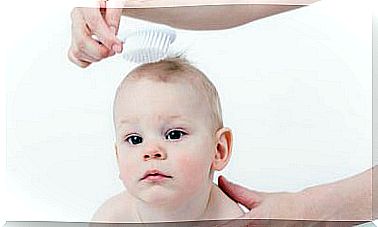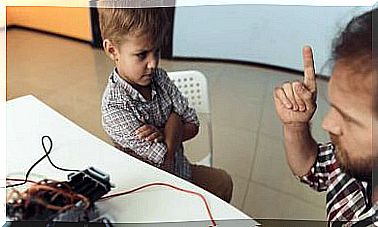Benefits Of Scuba Diving For Children
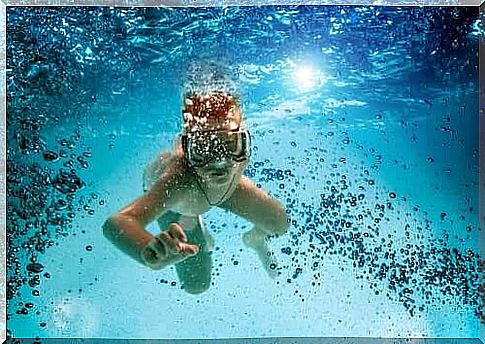
Scuba diving is diving in which a respirator is used as an aid, which is typically a compressed air or gas cylinder and a regulator connected to it. The popularity of the sport as a hobby for children is growing all the time, which is not surprising as it develops many skills and abilities. In this article, we’ll talk about the benefits of scuba diving for your child.
What is the best age to start scuba diving?
Experts disagree on when is the best time to start practicing scuba diving. While scuba diving, when properly implemented, is a safe hobby, it involves certain risks that should not be underestimated. Obviously, this is not quite a hobby for young children. The child needs to be able to analyze the potential risks themselves, which requires a certain level of awareness and maturity. It is also important that the child’s self-control has already developed to some degree, as something may happen during the dive that can cause the child to panic. This in turn easily leads to errors that can have very serious consequences.
The best age to start scuba diving is usually around 1o-12 years, although this is not a completely universal rule. The appropriate starting age depends a lot on the nature and maturity of the child. In many countries, scuba diving is allowed for children over the age of 10. In Finland, scuba diving courses are typically organized for people over 12 years of age, sometimes also for 10-year-olds who have completed a snorkel diving card.
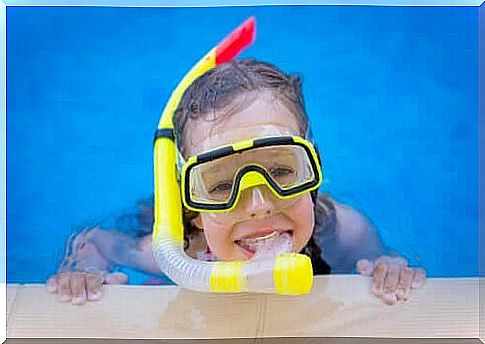
The benefits of scuba diving for the child
Scuba diving offers a wide range of benefits for the child. It can have a very positive effect on a child’s physical, mental, intellectual and social development. The main benefits of scuba diving for a child are:
- Scuba diving helps to tighten muscles and develop a child’s motor skills.
- Helps improve lung capacity and cardiovascular function.
- Helps promote baby maturation.
- Helps to strengthen the child’s self-esteem and sense of success.
- Encourages responsibility.
- Stimulates imagination and creativity.
- Strengthens the values of cooperation, team spirit and partnership.
One of the main benefits of scuba diving is that it helps the child manage their stress. Even if a child does not experience the same pressure as an adult, children may also feel stress. Scuba diving is a great activity to channel anxiety in a positive way.
What to consider before starting a scuba dive?
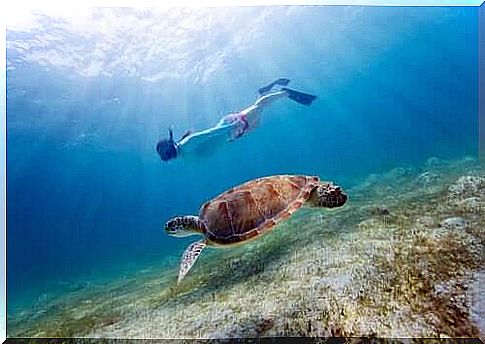
There are risks involved in scuba diving, but they are all manageable. However, they should not be underestimated. It is important to be aware of certain guidelines and dangers.
- Diving teachers need to be qualified professionals – not only when it comes to diving but also when working with children.
- The lungs of a child under the age of 8 are not yet developed enough for scuba diving. Experts therefore recommend that a child under the age of 8 not yet try scuba diving.
- A child under the age of 12 may easily experience ear pain. The dive teacher should be able to teach the child techniques to reduce the pressure in the child’s ears.
- The smaller the child, the greater the risk of hypothermia.
- The child must be at least 150 cm tall and weigh at least 45 kg to be able to dive.
- Before a child starts scuba diving, the child must be able to swim well. The child should also be able to swim well with diving equipment.
- The first diving hour is held in the pool, after which the child can dive into the open water.
- It is not recommended to dive longer than 25 minutes.
- Children should not dive with each other, but each child should dive with an experienced adult.
- The child should learn that he must not rise to the surface faster than air bubbles.
- After the dive, do not ache 500 meters higher for medical reasons. This is true 12 hours after the dive.
- The child must also be sufficiently independent. He must be able to climb into the boat himself and carry and take care of his diving equipment.




